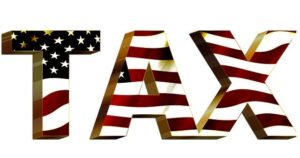Navigating UK Tax Translations: Certified Services for Compliance
Non-UK residents and non-native English speakers conducting business, owning assets, or earning income within the UK must submit precise translations of their tax documents to Her Majesty's Revenue and Customs (HMRC). These translations must be…….

Non-UK residents and non-native English speakers conducting business, owning assets, or earning income within the UK must submit precise translations of their tax documents to Her Majesty's Revenue and Customs (HMRC). These translations must be certified, reflecting the exact content of the original documents and bearing a statement of accuracy along with proof of the translator's professional credentials. Only specialized UK translation services that are accredited and recognized by HMRC can provide such certified translations, ensuring that all financial data, including annual accounts, partnership agreements, employment contracts, and rental agreements, is accurately conveyed. Selecting a service with expertise in tax document translations is essential for legal compliance and to avoid penalties due to translation errors. With the complexity of maintaining both linguistic and legal precision, utilizing reputable UK translation services is crucial for a compliant submission process of tax returns.
Navigating the complexities of UK tax returns can be challenging enough without the added layer of translating foreign language documents. This article elucidates the critical role of certified translations in ensuring compliance with HM Revenue & Customs (HMRC) requirements. We delve into the necessity of these translations, differentiating them from their non-certified counterparts, and guide you through the legal framework governing their use within the UK. From understanding what documents need translation to verifying authentic translation services, this comprehensive overview will equip you with the knowledge to accurately submit your tax documents. Whether you’re an individual expatriate or a multinational corporation, grasping the key points discussed in sections such as ‘The Role of Professional Translation Services in Tax Document Compliance’ and ‘How to Verify the Authenticity of Certified Translation Services in the UK’ will prove indispensable for tax document submission.
- Understanding the Necessity of Certified Translations for UK Tax Returns
- The Role of Professional Translation Services in Tax Document Compliance
- Key Differences Between Certified and Non-Certified Translations
- Common Foreign Language Documents Required for UK Tax Filings
- Step-by-Step Guide to Obtaining Certified Translations for Tax Purposes
- How to Verify the Authenticity of Certified Translation Services in the UK
- Navigating the Legal Framework Governing Tax Document Translations in the UK
Understanding the Necessity of Certified Translations for UK Tax Returns

When non-UK residents or individuals who are not native English speakers own assets, conduct business, or receive income within the United Kingdom, they must comply with the country’s tax regulations. A pivotal aspect of this compliance involves accurately reporting financial information to Her Majesty’s Revenue and Customs (HMRC). For such individuals, tax documents written in a foreign language necessitate professional translation services to ensure clarity and precision. UK translation services specializing in certified translations play an indispensable role here. Certified translations are officially endorsed translations that confirm the accuracy and completeness of the translated content. They are crucial for official UK tax returns as they provide HMRC with reliable, understandable information, facilitating accurate assessment and calculation of taxes due. The precision and authenticity guaranteed by certified translations ensure that non-UK residents can meet their tax obligations without delay or uncertainty. By leveraging the expertise of accredited translation professionals, individuals can navigate the complexities of tax reporting in a foreign language with confidence, thereby avoiding potential legal complications and ensuring compliance with UK tax laws.
The Role of Professional Translation Services in Tax Document Compliance

When non-UK residents or individuals who are not native English speakers need to submit tax documents in the United Kingdom, professional translation services play a pivotal role in ensuring compliance with HM Revenue & Customs (HMRC) regulations. These services offer precise and accurate translations of tax documents, which is crucial for the correct interpretation and processing of financial information by UK authorities. The accuracy of these translations can significantly impact an individual’s or company’s tax liabilities and compliance status. Certified translators with expertise in legal and financial terminology are instrumental in providing translations that meet the stringent standards required for official use. They ensure that every nuance and figure within the documents are conveyed accurately, thereby eliminating any ambiguity and reducing the risk of misinterpretation by UK tax officials. Engaging reputable UK translation services not only facilitates timely tax filing but also safeguards against potential legal issues arising from incorrect translations. This is particularly important for complex financial documents such as annual accounts, balance sheets, and income statements that require meticulous attention to detail and an in-depth understanding of both the source and target languages. By leveraging professional translation services, individuals can navigate their UK tax obligations with confidence, ensuring that all tax documents are accurately translated and compliant with UK regulations.
Key Differences Between Certified and Non-Certified Translations

When submitting tax documents to the UK authorities, it is imperative to ensure that all foreign-language documents are accurately translated into English. This is where the distinction between certified and non-certified translations becomes crucial. Non-certified translations, provided by translators without formal certification, can offer a cost-effective solution for less sensitive contexts. However, for official purposes such as UK tax returns, certified translations are indispensable. These translations are executed by professional translators who hold a recognized qualification and are affiliated with a reputable translation body. Certified translations come with a statement of accuracy and a certificate of authenticity, which attests to the exactness and reliability of the translated content. This certification is essential as it confirms to the UK tax authorities that the translated documents meet the required legal standards and accurately represent the original text, thus avoiding potential issues with the submission of tax documents. UK translation services specializing in certified translations ensure compliance with the regulations set forth by Her Majesty’s Revenue and Customs (HMRC). Engaging such services is not merely a formality but a safeguard that your tax documentation accurately reflects your financial position, which is pivotal for accurate tax assessment and compliance.
Common Foreign Language Documents Required for UK Tax Filings

When filing UK tax returns, individuals and businesses with foreign income or assets often need to provide translations of key financial documents. The UK tax system requires precise and certified translations for any tax-relevant foreign language documents to ensure accurate reporting and compliance with HM Revenue & Customs (HMRC) regulations. Common tax documents that may require translation include annual accounts, partnership agreements, employment contracts, property rental agreements, bank statements, and corporate tax returns. For non-English documents, UK translation services play a pivotal role in providing certified translations that meet the legal standards set by HMRC. These translations must be accurate and come with a statement of accuracy and a guarantee of confidentiality to protect sensitive financial information. Engaging professional UK translation services is crucial for a smooth tax filing process, as they ensure that all foreign language documents are correctly translated and submitted, thus avoiding potential discrepancies or penalties due to miscommunication or mistranslation. This meticulous attention to detail by certified translators facilitates the seamless integration of international financial data into UK tax filings, safeguarding both individual and corporate tax compliance.
Step-by-Step Guide to Obtaining Certified Translations for Tax Purposes

When foreign individuals or businesses operating in the UK are required to submit tax documents that contain non-English text, obtaining certified translations becomes imperative. Certified translations ensure that HM Revenue and Customs (HMRC) can accurately assess the information provided, as they must be a true and faithful representation of the original content. To navigate this process, start by identifying all tax-related documents that require translation. These may include financial statements, invoices, contracts, or any other paperwork where figures or text are in a foreign language.
Once you’ve gathered all necessary documents, the next step is to engage with a reputable UK translation service that specialises in tax documents. Look for providers that offer certified translations, which come with a statement of accuracy and a signature and seal from a qualified translator or translation agency. It’s crucial to choose a service that understands both the language of your source document and the specific requirements of HMRC. After selecting your service provider, submit your documents along with any forms required by the translation service to initiate the process. The translator will then convert your documents into English, ensuring that all numerical data remains accurate and that all legal terms are correctly rendered in their UK tax context. Upon completion, you will receive the certified translations, complete with a certificate of accuracy. This documentation should be submitted alongside your tax return to comply with UK tax regulations. Remember to keep both the original documents and the translated versions for your records and for potential audit purposes.
How to Verify the Authenticity of Certified Translation Services in the UK

When engaging with UK translation services for certified translations of tax documents, verifying the authenticity and reliability of the service provider is paramount. To ensure that your translations are both accurate and accepted by HM Revenue & Customs (HMRC), it’s crucial to perform due diligence on the translation agency. Start by checking their accreditation status with professional translation bodies, such as the Institute of Translation and Interpreting (ITI) or the Association of Translation Companies (ATC). These institutions uphold high standards of quality assurance and ethics within the translation industry. Additionally, look for reviews and testimonials from previous clients to gauge their expertise and reputation in handling tax-related documents. A professional UK translation service should also provide clear details about their translators’ qualifications, experience, and proficiency in the languages required for your tax documents. This transparency not only validates their expertise but also ensures that your translations are carried out by individuals with a deep understanding of both language nuances and tax terminology. Remember to verify if the service is familiar with the specific forms and documents you need translated, such as P60s, P45s, or annual accounts, to guarantee compliance with UK tax regulations. By adhering to these steps, you can confidently select a trustworthy UK translation service that will provide certified translations of your tax documents, facilitating accurate reporting and compliance with legal requirements.
Navigating the Legal Framework Governing Tax Document Translations in the UK

When it comes to submitting tax documents in the UK, accuracy and compliance with legal requirements are paramount. For non-UK residents or individuals whose official documents are not in English, the need for precise and authorised translations becomes crucial. The UK’s Her Majesty’s Revenue and Customs (HMRC) mandates that all foreign tax documents must be accompanied by certified translations to ensure their content is correctly interpreted. This legal framework requires that these translations are not only linguistically accurate but also endorsed by a professional translation service that offers UK translation services, which includes a statement of accuracy and a clear record of the translator’s qualifications. This certification process attests to the reliability and authenticity of the translated documents, making them legally admissible alongside the original records. Navigating this framework can be complex, as it involves understanding both the language nuances and the legal stipulations. Thus, selecting a translation service with expertise in UK tax document translations is essential for a seamless and compliant process. These services not only provide linguistic precision but also ensure that all translations meet the stringent standards set forth by HMRC, thereby facilitating the correct processing of tax returns for individuals and businesses alike.
When submitting tax documents to the UK’s HM Revenue and Customs (HMRC), the inclusion of foreign language records necessitates precise and authoritative translations. Certified translations, as detailed in this article, serve a critical function in ensuring that non-English speaking individuals can accurately report their global income and assets for tax purposes. Professional translation services in the UK specialise in providing these translations, bridging the language gap and facilitating compliance with tax regulations. Understanding the nuances between certified and non-certified translations is paramount, as the former are legally recognised and can influence the outcome of one’s tax obligations. This article has outlined the key aspects to consider when selecting a translation service, from identifying common foreign language documents required for UK tax filings to verifying the authenticity of such services. By adhering to the legal framework governing tax document translations in the UK and utilising reputable translation services, individuals can navigate this process with confidence. For those looking to ensure the accuracy and acceptance of their tax documentation, professional certified translation services are an indispensable resource for compliance and transparency within the UK tax system.






